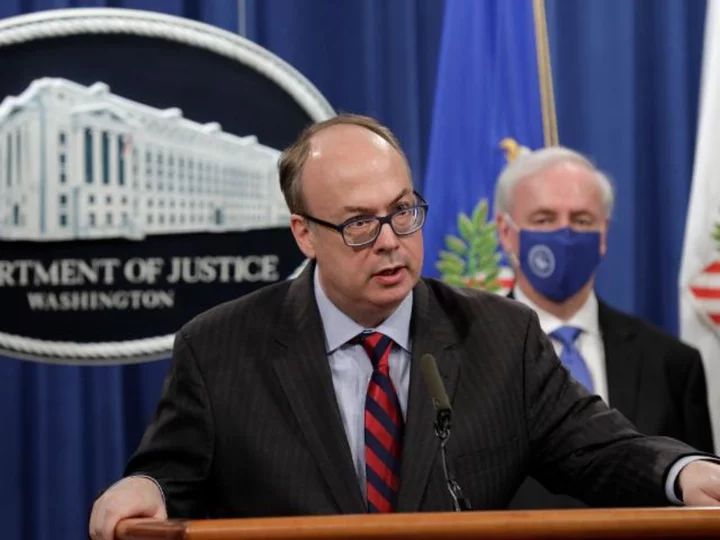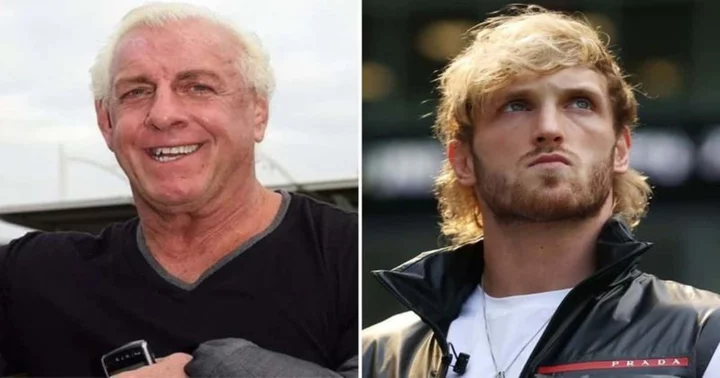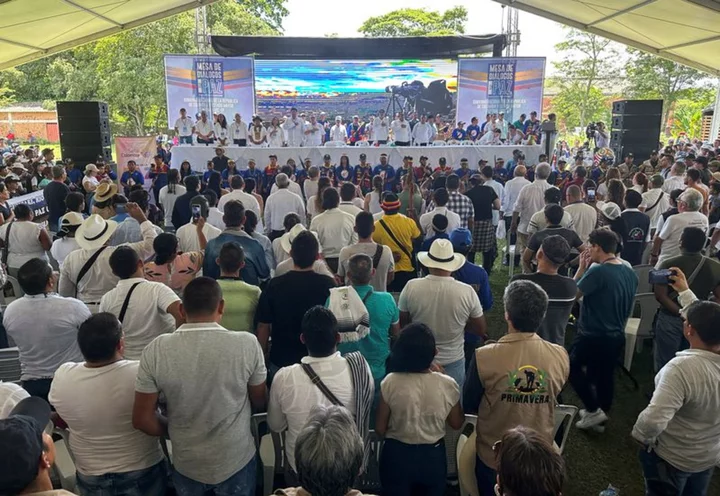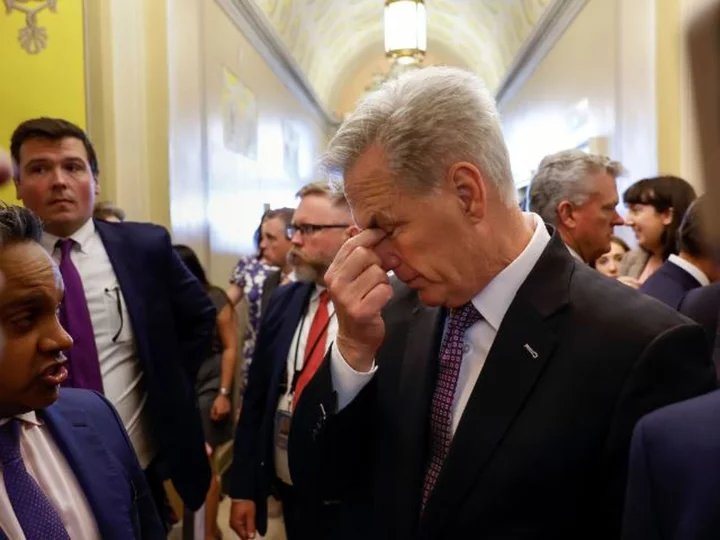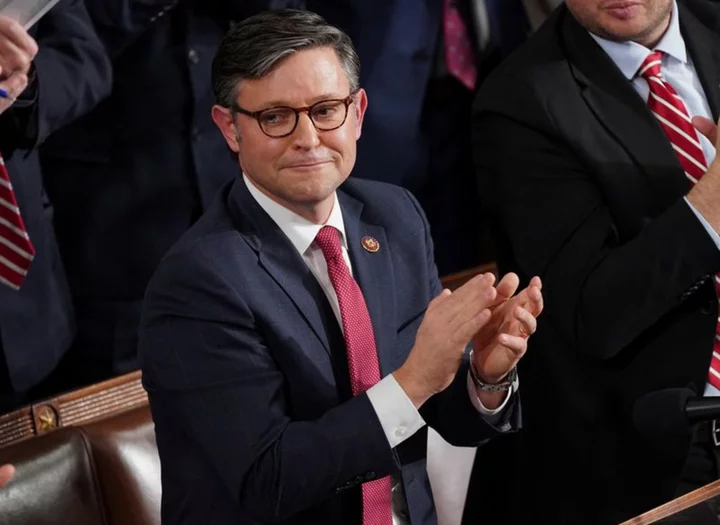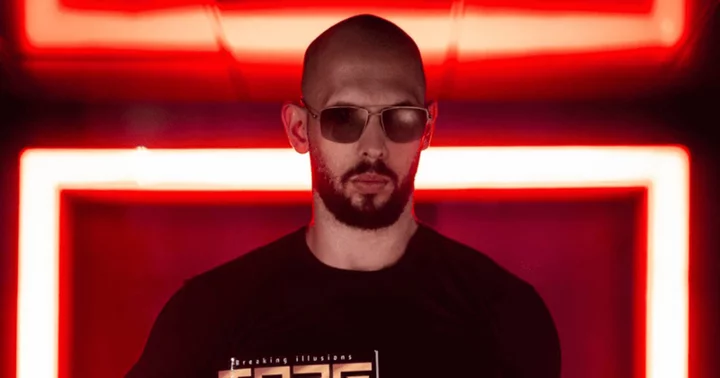Trump-era Justice Department official Jeffrey Clark, who was charged in the Georgia election subversion indictment, will face off in court Monday against Fulton County prosecutors at a hearing over his attempt to move his case to federal court.
The hearing at the federal courthouse in Atlanta will take place in front of US District Judge Steve Jones, who issued a major ruling earlier this month rejecting a similar request from another co-defendant: Trump White House chief of staff Mark Meadows.
The case stems from Clark's efforts to use his senior role at the Justice Department to help former President Donald Trump overturn the results of the 2020 presidential election, despite the objections of his bosses.
Clark and other defendants seeking to move their cases to federal court say they were acting on behalf of the federal government after the election, thus they should be able to have their state charges tried before a federal judge. They could also potentially have somewhat friendlier trial settings or get the charges dropped entirely by invoking immunity protections afforded to federal officials.
"Mr. Clark's participation in any legal, factual, or policy deliberations at the Justice Department were in his role as a senior official of that Department," his lawyers wrote.
His arguments Monday are poised to test the divide between the federal government and states' actions.
Clark's bid differs from Meadows' and is a tossup, according to several former Justice Department officials, given that he was advocating within the Justice Department for the agency to take action to undermine public trust in the election. However, Clark's superiors in the department opposed him, and his direct communication with Trump after the election wasn't authorized as part of his job.
Trump will also likely seek this recourse, but he hasn't filed any motions yet.
Clark is charged with violating Georgia's racketeering law, known as RICO, and attempting to make false statements. He has pleaded not guilty.
Fulton County District Attorney Fani Willis opposes Clark's bid to move his case.
Her team said Clark "went dangerously outside of any actual role" and "exceeded the scope of his own authority" at the Justice Department. Prosecutors noted that Clark's bosses repeatedly told him he was out of line, with one saying his actions were "wildly inappropriate and irresponsible."
After Trump lost the 2020 election, Clark started embracing far-fetched conspiracy theories about an international scheme to rig voting machines against Republicans, according to two congressional reports and past CNN reporting. He also violated Justice Department policy by speaking directly with Trump on several occasions.
As part of these conversations, Trump considered installing Clark as acting attorney general, so he could send a letter on behalf of the Justice Department urging officials in key states -- including Georgia -- to revisit their election results due to supposed fraud.
Trump backed away from the plan after top Justice Department officials threatened to resign in protest. These actions are part of Trump's federal election subversion charges, in which Clark is an unindicted co-conspirator. Trump has pleaded not guilty in both cases.
Former attorney general backs Clark
It is unknown whether Clark will take the stand Monday to testify about his role at the Justice Department, as Meadows did at his own hearing in an unexpected, high-risk attempt to expand the court's view of his role as chief of staff.
Clark's attorney didn't respond to a request for comment, though Clark has submitted a sworn statement to the court about his service at the Justice Department, which may be used as evidence in the case.
In the statement, Clark wrote he never participated in campaign events for Trump's reelection, never acted in his personal capacity, and never took "knowingly false positions" during his time at the Justice Department.
Former Attorney General Ed Meese, who served in the Reagan administration, also sent a sworn statement to the court in advance of the hearing, arguing on Clark's behalf, "The prosecution of the President and an [assistant Attorney General] is a major affront to federal supremacy never before seen in the history of our country," according to a court filing Sunday.
"If the premise of this prosecution were to be accepted, then state law enforcement officials could arrest local U.S. Attorneys and their Assistants while they were deliberating over whether and/or how to approach a possible prosecution of state or local officials," Meese added.
State prosecutors subpoenaed former Justice Department official Jody Hunt to testify at Monday's hearing. He was an influential figure in the Trump administration, serving as the head of the Justice Department's Civil Division before Clark took on the responsibility, and later represented a key January 6, 2021, witness who provided damning testimony against Trump.
Hunt, when reached by CNN, declined to say what he was being called to testify about "out of respect for the process."
This is one of two federal hearings this week about moving the Georgia case. Three "fake electors" facing charges have an hearing set for Wednesday on the same question.

